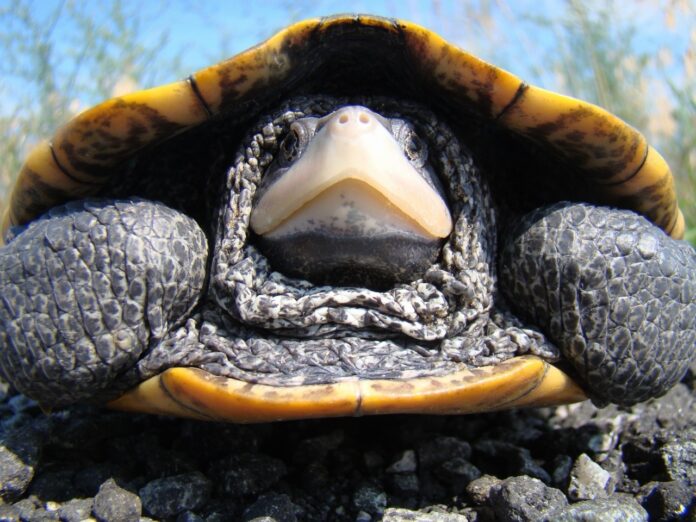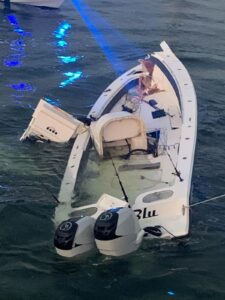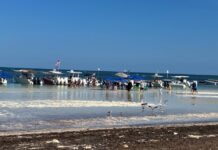The Monroe County Extension Office is offering free bycatch reduction devices (BRDs) that have been required on all recreational blue crab traps since March 1, 2023.
Although Monroe County does not have a large recreational blue crab fishery, it is essential to meet these legal requirements because blue crab fishing without an adequately installed BRD is a second-degree misdemeanor offense. Penalties are up to $500 per trap and a mandatory court appearance. Adding these BRDs provides a smaller trap opening to reduce the likelihood of catching and drowning diamondback terrapins.
Research has shown the 6-inch by 2-inch plastic devices are successful at keeping diamondback terrapins out of the traps, yet large enough to allow the blue crabs to enter the traps for capture. These new BRD regulations are for blue crab traps only — this does not apply to the black plastic recreational stone crab traps. For the 2024-2025 stone crab season, there is a new regulation that applies to recreational and commercial stone crab traps: an unobstructed escape ring 2-3/16″ in diameter must be located within a vertical exterior trap wall. The escape ring allows smaller stone crabs to escape from the traps where larger stone crabs frequently eat them.
Diamondback terrapins are small turtles that live in the mangroves and brackish waters of estuaries from Massachusetts to Texas. They are a species of particular concern, endangered or threatened throughout their range. Out of the seven subspecies of diamondback terrapins, five live in Florida, and three of the seven sub-populations only live in Florida (mangrove, Florida, and ornate). The mangrove diamondback terrapin only lives in the brackish waters of the Florida Keys and Everglades. Like all diamondback terrapins, the mangrove diamondback terrapin is a secretive reptile foraging on mussels, clams, snails and crabs.
These turtles are known to enter blue crab traps for an easy blue crab meal. Since turtles are air breathers, they frequently drown in blue crab traps, a significant cause of their decline. Mangrove diamondback terrapins live around 25 years, and it takes females five years to become reproductive when they start having two to three clutches of five to 10 eggs per year. In addition to negative encounters with blue crab traps, they are collected for the pet trade and Asian live food markets.
Since March 2021, terrapins may not be collected for pets or food in Florida. People with terrapins may keep their pets but must register them with a no-cost Personal Possession permit from the FWC.
The Monroe County Extension office has free BRDs (bycatch reduction devices) for recreational blue crab traps. Please call 305-292-4501 or email shellykrueger@ufl.edu for more information.
























